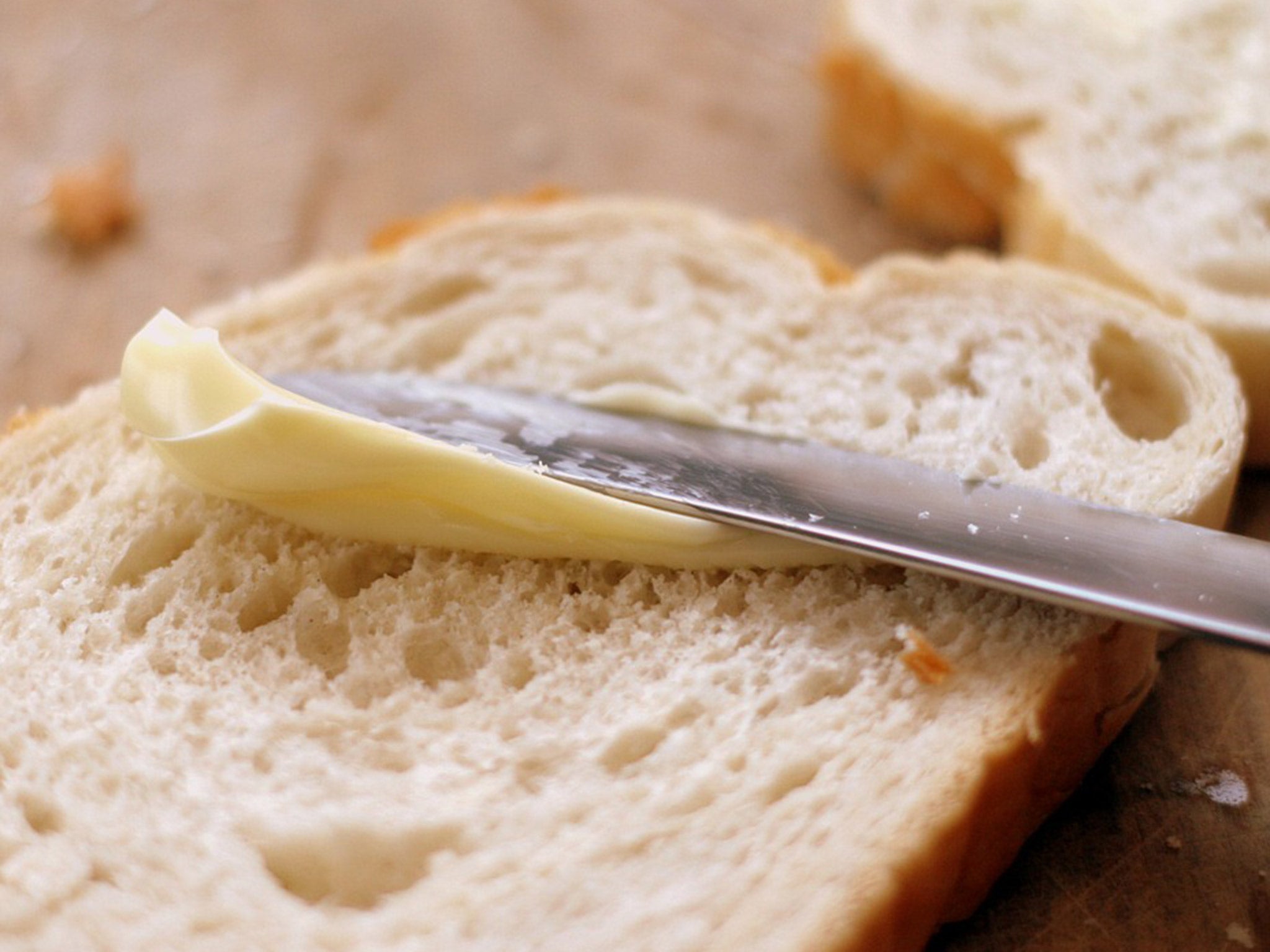Is butter bad for you?
As new research appears to throw 50 years of health warnings about saturated fats out the window, what are we to believe about the health risks of butter?

Your support helps us to tell the story
From reproductive rights to climate change to Big Tech, The Independent is on the ground when the story is developing. Whether it's investigating the financials of Elon Musk's pro-Trump PAC or producing our latest documentary, 'The A Word', which shines a light on the American women fighting for reproductive rights, we know how important it is to parse out the facts from the messaging.
At such a critical moment in US history, we need reporters on the ground. Your donation allows us to keep sending journalists to speak to both sides of the story.
The Independent is trusted by Americans across the entire political spectrum. And unlike many other quality news outlets, we choose not to lock Americans out of our reporting and analysis with paywalls. We believe quality journalism should be available to everyone, paid for by those who can afford it.
Your support makes all the difference.Is butter bad for you?
No, providing you eat it in moderation, like any other kind of nutritious food.
Why are we asking this question?
Butter is rich in saturated fats and a recent study has shown that the supposed link between moderate intake of saturated fats and coronary heart disease does not appear to exist – contradicting about 50 years of health advice.
So what does the latest research say?
It was an “observational” study which means it analysed people’s memory of what they ate and compared this to whether they suffered or died from coronary heart disease, stroke or type-2 diabetes. It found no link between these diseases and saturated fats but did find a link with trans-fats, which are the fats made industrially by the hydrogenation of vegetable oil, for instance to make margarine.
What does that mean?
It does not mean that we can now reach out for the butter dish and forget all previous warnings about saturated fats – even the scientists who carried out the study say this. High amounts of saturated fats in the diet are probably not good for us, but the risk almost certainly varies between people.
So which types of food are good/bad for you?
There is pretty much a consensus on the so-called “Mediterranean diet” being good for us, which means polyunsaturated fats such as olive oil, oily fish such as sardines, fresh fruit and vegetables, red wine, whole grain bread and so on. Foods high in saturated fats, such as milk, cheese, cream, red meat, milk chocolate, coconut milk etc, are probably not as bad for us as we were led to believe, but only in moderation. Foods to avoid (but they won’t poison us) are those containing trans-fats, which experts say were eliminated from the UK food chain about 10 years ago. Traditionally they were used in processed foods like cakes, biscuits, crisps, packaged pies and so on.
So is this the definitive line on butter?
Probably not.
Join our commenting forum
Join thought-provoking conversations, follow other Independent readers and see their replies
Comments